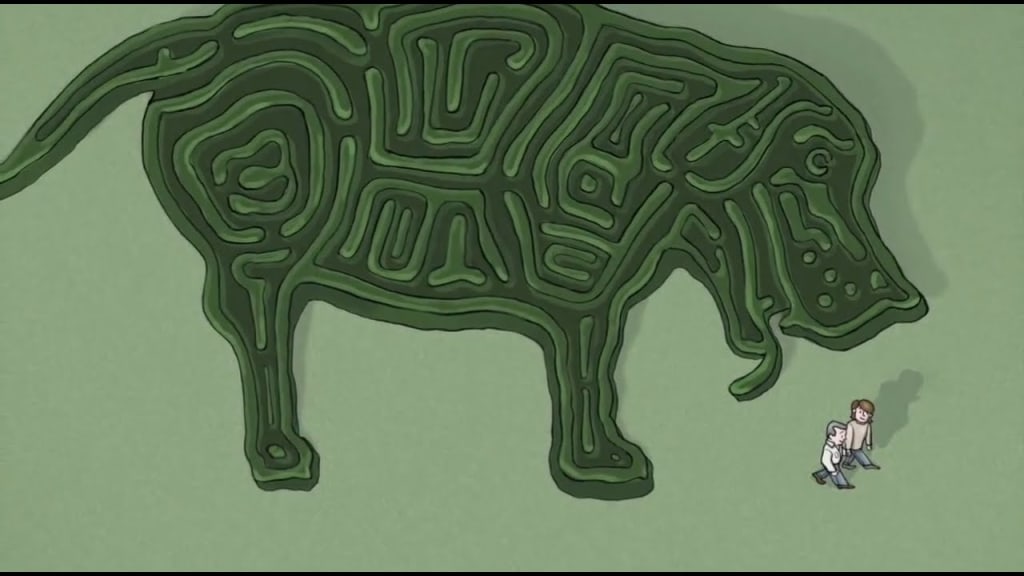
The depression
Do you mean the Great Depression, which was a severe worldwide economic depression that lasted from 1929 to 1939? The Great Depression was the longest, deepest, and most widespread depression of the 20th century. The depression originated in the United States and quickly spread to the rest of the world. It resulted in mass unemployment, poverty, homelessness, and the decline of global trade. The Great Depression had a profound impact on the world and is considered one of the most significant events in modern history.
Alternatively, if you are referring to depression as a mental health disorder, it is a common and serious medical illness that negatively affects how you feel, the way you think and how you act. Depression causes feelings of sadness and/or a loss of interest in activities once enjoyed. It can lead to a variety of emotional and physical problems and can decrease a person's ability to function at work and home. Depression is treatable, and there are many effective treatments available, such as psychotherapy, medication, and lifestyle changes. If you or someone you know is struggling with depression, it is important to seek help from a mental health professional.
Depression and black dog
The term "black dog" is often used as a metaphor for depression, originating from Winston Churchill's description of his own struggles with the condition. Churchill referred to his depression as a "black dog" that followed him around, sometimes lurking in the shadows and other times jumping out at him unexpectedly. The metaphor of the black dog has been adopted by many people to describe the profound and persistent sadness and hopelessness that characterizes depression.
Depression is a common and serious mental health disorder that affects millions of people worldwide. It can cause a range of symptoms, including feelings of sadness and hopelessness, loss of interest in activities, fatigue, sleep and appetite changes, and difficulty concentrating. Depression can be caused by a combination of genetic, environmental, and psychological factors.
If you are experiencing symptoms of depression, it is important to seek help from a mental health professional. There are many effective treatments available, including medication, psychotherapy, and lifestyle changes, that can help alleviate symptoms and improve quality of life. With the right support and treatment, it is possible to recover from depression and live a fulfilling and productive life.
How to overcome depression
Overcoming depression can be a long and challenging process, but it is possible with the right help and support. Here are some steps that can be helpful in managing and overcoming depression:
Seek professional help: A mental health professional can help you develop a treatment plan that is tailored to your specific needs. This might include medication, therapy, or a combination of both.
Talk about your feelings: Don't bottle up your emotions. Talking to someone you trust, such as a friend or family member, can help you process your feelings and reduce stress.
Practice self-care: Taking care of yourself is important for your physical and mental health. This can include eating a healthy diet, getting regular exercise, getting enough sleep, and engaging in activities you enjoy.
Challenge negative thoughts: Depression can make it difficult to see things in a positive light. Try to challenge negative thoughts by questioning the evidence for them, looking for alternative perspectives, and focusing on your strengths and accomplishments.
Connect with others: Spending time with friends and family, or getting involved in social activities, can help improve your mood and reduce feelings of isolation.
Set realistic goals: Small, achievable goals can help you feel more in control of your life and boost your self-esteem.
Stay positive: Practice gratitude and focus on the positive things in your life. Try to reframe negative experiences as opportunities for growth and learning.
Be patient: Overcoming depression can take time and patience. Don't expect instant results, and be kind to yourself if you have setbacks.
Remember that depression is treatable, and recovery is possible. With the right help and support, you can learn to manage your symptoms and lead a fulfilling life. If you are struggling with depression, don't hesitate to reach out to a mental health professional for help.
Conclusion
In conclusion, depression is a common and serious mental health condition that can have a profound impact on a person's life. However, with the right help and support, it is possible to overcome depression and live a fulfilling and productive life. Some effective strategies for managing depression include seeking professional help, talking about your feelings, practicing self-care, challenging negative thoughts, connecting with others, setting realistic goals, staying positive, and being patient. If you or someone you know is struggling with depression, it is important to seek help from a mental health professional. With the right treatment and support, recovery is possible.





Comments
There are no comments for this story
Be the first to respond and start the conversation.